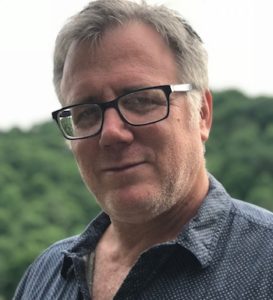Slow Medicine: How Chinese Medicine Became Associated With the Treatment of Chronic Illness
When I lived in China I’d often hear people there say “use western medicine for quick results, but use Chinese medicine for chronic conditions.” It was a bit confusing for me, as even as a student and new practitioner I’d see Chinese medicine be really helpful for more acute conditions. It made me wonder if the Chinese really understood Chinese medicine.
In this conversation we get some perspective on this issue. Listen into this discussion on how the clashing of cultures and China’s desire to “modernize” had an impact on the medicine we practice.
In This Conversation We Discuss:
- Introduction and discussion of modern medicine and Eric’s book
- How Chinese medicine became famous for chronic conditions
- In China you get a choice of using either Western or Chinese medicine
- Chinese medicine doctors of the past
- Meeting and interviewing famous doctors of the Republican era
- What it was like to become a doctor and work in the Republican era
- Western medicine in the Republican era
- Losing old teachings
- Memorization and its importance in Chinese medicine’s way of thinking
- How we might be able to go about relearning the older ideas and methods
- Extreme conditions produce brilliance
 I am a practitioner of Chinese medicine and a scholar of medical anthropology, researching the contemporary practice of Chinese medicine in China. I feel lucky to have these two fields of specialization that relate to each other in such interesting ways. From 1995 – 2000, I was a medical student at the Beijing University of Chinese Medicine, where I earned a Bachelor’s of Medicine. This training was the foundation for my future clinical practice but it was also an incredibly rich ethnographic experience that has informed all of my academic research and writing.
I am a practitioner of Chinese medicine and a scholar of medical anthropology, researching the contemporary practice of Chinese medicine in China. I feel lucky to have these two fields of specialization that relate to each other in such interesting ways. From 1995 – 2000, I was a medical student at the Beijing University of Chinese Medicine, where I earned a Bachelor’s of Medicine. This training was the foundation for my future clinical practice but it was also an incredibly rich ethnographic experience that has informed all of my academic research and writing.
I have also had two very formative research opportunities after my graduation from Beijing University of Chinese Medicine that have shaped me both as a researcher and scholar. In 2008-2009, I was funded by the American Council of Learned Societies to collect oral histories from senior doctors of Chinese medicine that had learned and practiced Chinese medicine during the Republican period (1911-1949). This project exposed me to the richness of medical practice in China in the early 20th century. I was fortunate to be able to continue my research into this period of Chinese history with a second grant from the Wellcome Trust to support a collaborative research project on the history of medicine in East Asia. This project allowed me to explore the fascinating clinical writings from this period.
I do not claim to have a particular clinical style. Instead, I have, for better or worse, incorporated different techniques from the many wonderful teachers I have encountered during my studies. Perhaps most important to my clinical practice, however, is my library. I have acquired a very good collection of Chinese medicine texts over the years that I always consult whenever I encounter a new problem in my clinic. I believe I have grown the most as a practitioner through this kind of clinically focused reading.
Links and Resources:
